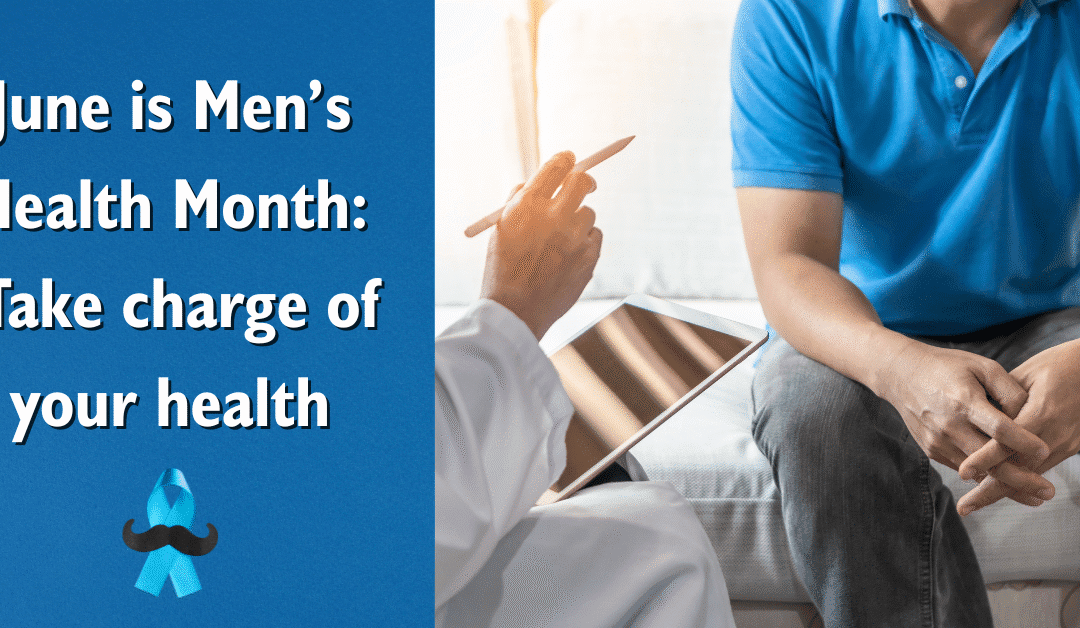
by Bag It Team | May 30, 2025 | Educational Articles
June marks Men’s Health Month, a time to raise awareness about preventable health problems and encourage early detection and treatment of disease among men and boys. At Bag It, we recognize how important it is to empower men with the tools and information they need—especially when facing a cancer diagnosis.
Cancer & Men: Know the Risks
 Men are more likely than women to be diagnosed with cancer and have a higher mortality rate. The most common cancers affecting men in the U.S. are:
Men are more likely than women to be diagnosed with cancer and have a higher mortality rate. The most common cancers affecting men in the U.S. are:
- Prostate cancer
- Lung cancer
- Colorectal cancer
- Bladder cancer
- Melanoma
Early detection is key. Men often delay routine checkups or ignore early symptoms. Regular screenings can catch issues before they become serious.
Tips for Taking Charge of Your Health
- Schedule annual checkups – Even if you feel fine, regular visits can help detect problems early.
- Know your family history – Some cancers run in families; talk with your doctor about any history of cancer.
- Get screened – Discuss appropriate cancer screenings with your provider (especially for prostate, colorectal, and skin cancer).
- Live healthy – Eat well, stay active, limit alcohol, don’t smoke, and protect your skin from the sun.
- Talk about it – Encourage the men in your life to prioritize their health, too.
How Bag It Cancer Can Help
If you or someone you know has been diagnosed with cancer, our Bag It Bag provides reliable, easy-to-understand materials to help patients feel informed, empowered, and organized. Men may not always ask for help—but they deserve support, too.
Let’s break the silence around men’s health and encourage the men in our lives to take action today.

Resources
General Men’s Health & Preventive Care
- Men’s Health Guidelines for Screening
- Men’s Health Month (Men’s Health Network) – Information, health facts, and advocacy resources dedicated to men’s health.
- CDC – Men’s Health – Covers key health risks, preventive steps, and tips for staying healthy.
Support for Men Facing Cancer
- Bag It – Get a Bag – Free resources to help patients feel informed, empowered, and organized.
- ZERO – The End of Prostate Cancer – Support, education, and advocacy specifically for those impacted by prostate cancer.
- COLONTOWN – A patient-led community for colorectal cancer
- GO2 for Lung Cancer – Education, screening & support for lung cancer
- CancerCare – Support for Men – Support groups, counseling, and educational workshops for men affected by cancer.
- Cancer Support Community – For Men – Emotional and practical support specifically geared toward men
Bag It Bags for Specific Cancers
- Prostate Cancer – Bag It and ZERO Prostate Cancer have partnered to develop 2 Bags of essential resources for patients and caregivers impacted by Advanced-Stage and Early-Stage Prostate Cancers.
- Colorectal Cancer –Bag It and Colontown have partnered to develop this Bag of essential resources for patients and caregivers impacted by colorectal cancer (CRC).
- Lung Cancer – Bag It and GO2 for Lung Cancer have partnered to develop this Bag of essential resources for patients and caregivers impacted by Lung Cancer.
Explore other Bag It Cancer-specific Bags.

by Bag It Team | Mar 12, 2025 | Events
By Ingrid, Bag It Bag recipient and volunteer
The 2025 Cologuard Classic by Exact Sciences
March 2 – 9, 2025
 Three rounds of golf were played on March 7, 8, and 9 at La Paloma Country Club and The Westin La Paloma Resort & Spa in Tucson, Arizona. It’s a beautiful Jack Nicklaus-designed course. The purpose of the Cologuard Classic golf tournament is to bring awareness to colon cancer, the importance of early detection, the available treatments, the innovations in detection and treatment, the prevention, recognize those affected, and to answer the huge number of questions that people have about colon cancer. What an exciting and busy weekend! Much walking was involved. Thank you to the Tucson Conquistadores and Exact Sciences and many others for coordinating this event.
Three rounds of golf were played on March 7, 8, and 9 at La Paloma Country Club and The Westin La Paloma Resort & Spa in Tucson, Arizona. It’s a beautiful Jack Nicklaus-designed course. The purpose of the Cologuard Classic golf tournament is to bring awareness to colon cancer, the importance of early detection, the available treatments, the innovations in detection and treatment, the prevention, recognize those affected, and to answer the huge number of questions that people have about colon cancer. What an exciting and busy weekend! Much walking was involved. Thank you to the Tucson Conquistadores and Exact Sciences and many others for coordinating this event.
Seventy-eight PGA champion golfers were paired with colon cancer patients/survivors. I was one of those survivors who had the honor of being paired with a golf pro. He wore a blue ribbon with my name on it on his cap, and he played in my honor. We got to meet our pro and chat for a few minutes before they teed off. Then, we could walk as much of the course as we wanted or were able. We could follow the golfers on several well-placed giant televisions inside and outside.
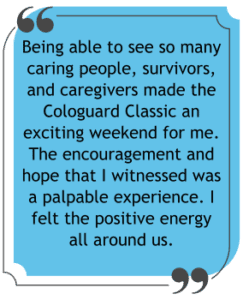 We were able to attend and participate in some fun and informative activities in the “Advocacy Expo Area”, yummy food was readily available in Survivor Central and other areas, there was some TV coverage of the opening ceremonies on the Today Show, there were some workshops/presentations inside the main hotel about treatment options, diagnoses, giving our feedback about our cancer experiences, and treatment innovations. I would like to have been able to attend more because they all sounded very interesting. Some of us touched base with fellow survivors and had personal conversations. I was able to give one of the new CRC (Colorectal Cancer) Bag It Bags to a lady from South Carolina. She and I went to her room and I gave her the guided tour of the Bag. She was extremely grateful to receive the bag. The look of gratitude on her face was rewarding. We exchanged contact information and we’ll stay in touch.
We were able to attend and participate in some fun and informative activities in the “Advocacy Expo Area”, yummy food was readily available in Survivor Central and other areas, there was some TV coverage of the opening ceremonies on the Today Show, there were some workshops/presentations inside the main hotel about treatment options, diagnoses, giving our feedback about our cancer experiences, and treatment innovations. I would like to have been able to attend more because they all sounded very interesting. Some of us touched base with fellow survivors and had personal conversations. I was able to give one of the new CRC (Colorectal Cancer) Bag It Bags to a lady from South Carolina. She and I went to her room and I gave her the guided tour of the Bag. She was extremely grateful to receive the bag. The look of gratitude on her face was rewarding. We exchanged contact information and we’ll stay in touch.
The third and final round was played on Sunday. It was fun sitting, chatting, eating and watching the golfers at the 15th green, Survivor Central with other survivors/loved ones. Individuals representing 17 different cancer advocacy groups were in attendance and bringing awareness to colorectal cancer. There was a 15th hole walk by many of the survivors/loved ones to show awareness and a play-off between the top two players to cap off the tournament. The winner of the trophy was Steven Alker; he came in 12 under par for all three days.
 I found out that there were 361 colorectal cancer patients, survivors, caregivers and loved ones from 36 states and Canada who attended this year’s Cologuard Classic.
I found out that there were 361 colorectal cancer patients, survivors, caregivers and loved ones from 36 states and Canada who attended this year’s Cologuard Classic.
It was definitely a weekend well-spent.
Important Reminder: Get screened for colorectal cancer! Screening is vital in detecting cancer early. Learn more about Cologuard®.
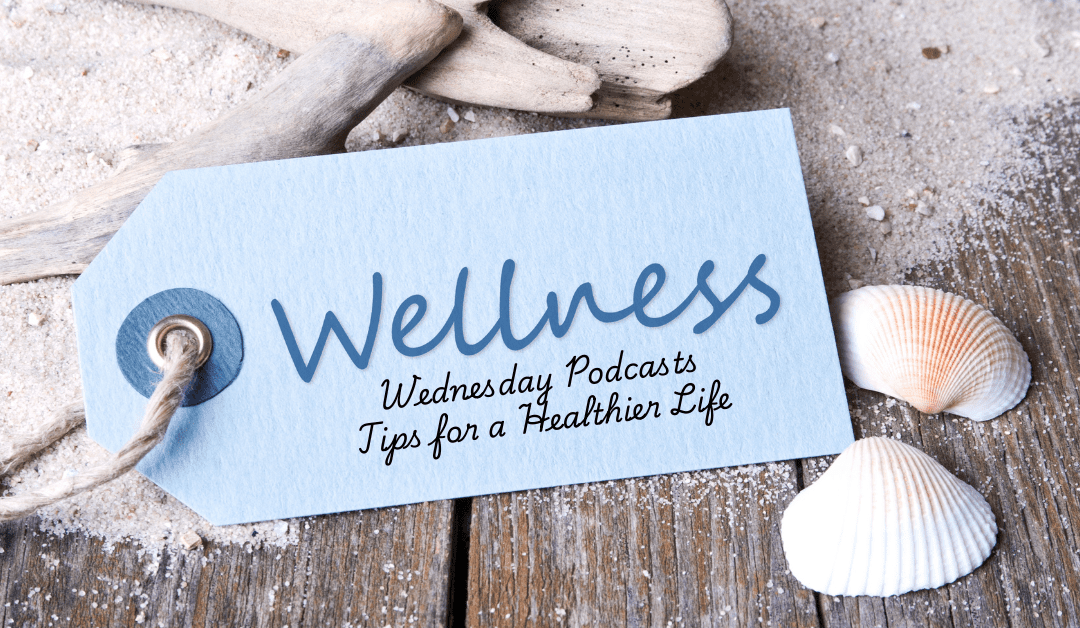
by Bag It Team | Dec 18, 2024 | Events
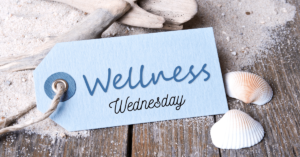 Looking for tips on healthy living and overall wellness?
Looking for tips on healthy living and overall wellness?
Watch Bag It Cancer’s recordings of our Wellness Wednesdays Podcasts on You Tube On Demand.

by Bag It Team | Jul 29, 2024 | Educational Articles
Tips for Keeping You and Your Pet Healthy During Cancer Treatment
The “dog days of summer” remind us of the warmth and joy that pets bring into our lives, especially during tough times like a cancer diagnosis. Their companionship and unconditional love can brighten even the hottest, most challenging days. Many people consider their pets part of the family and rely on them for emotional support during difficult periods.
 Studies show that pets can significantly improve mental well-being. Many cancer centers and hospitals recognize this and offer pet therapy programs. These programs include visits to clinics, support groups and even home visits for patients. Our furry friends can lift our moods, lower stress, create a calming effect, reduce pain and have a positive impact on our overall health.
Studies show that pets can significantly improve mental well-being. Many cancer centers and hospitals recognize this and offer pet therapy programs. These programs include visits to clinics, support groups and even home visits for patients. Our furry friends can lift our moods, lower stress, create a calming effect, reduce pain and have a positive impact on our overall health.
During cancer treatment, your well-being and your pet’s well-being begins with effective communication.
It’s important to know that while you can’t give your pet cancer, having a pet can increase your risk of infection, especially if your immune system is compromised. Before starting cancer treatment, inform your doctor about your pet and how important they are to you. Discuss how your ability to care for your pet might be affected by the treatment and any potential side effects. Your doctor will provide personalized advice based on your type of cancer, specific treatments and the type of pet you have.
Precautions may vary, especially with pets like reptiles, amphibians, rodents, and birds, which can carry a higher risk of infection such as salmonella. Guidelines may include limitations on your involvement with your pet such as avoiding contact with their bodily fluids and waste, preventing scratches and possibly even limiting petting them.
Additionally, it’s crucial to keep potentially harmful cancer medications and related items out of your pet’s reach.
You may also want to consult your pet’s veterinarian to ensure your pet remains healthy during this time. Ask about essential steps, including proper grooming, keeping up-to-date with all recommended vaccinations and medications, and any necessary veterinary care.
Here are some tools and resources to help you take care of your pet during cancer:
My Cancer Circle – an online tool that helps organize the community of people who want to help you with your pet
CancerCare’s Pet Assistance & Wellness (PAW) Program features:
- Helpline
- Searchable online database to help people affected by cancer find low-cost or free pet care services
- Downloadable booklet: Planning for Your Pet’s Future Care A Guide to Caring for Your Beloved Pet After You’ve Been Diagnosed With Cancer
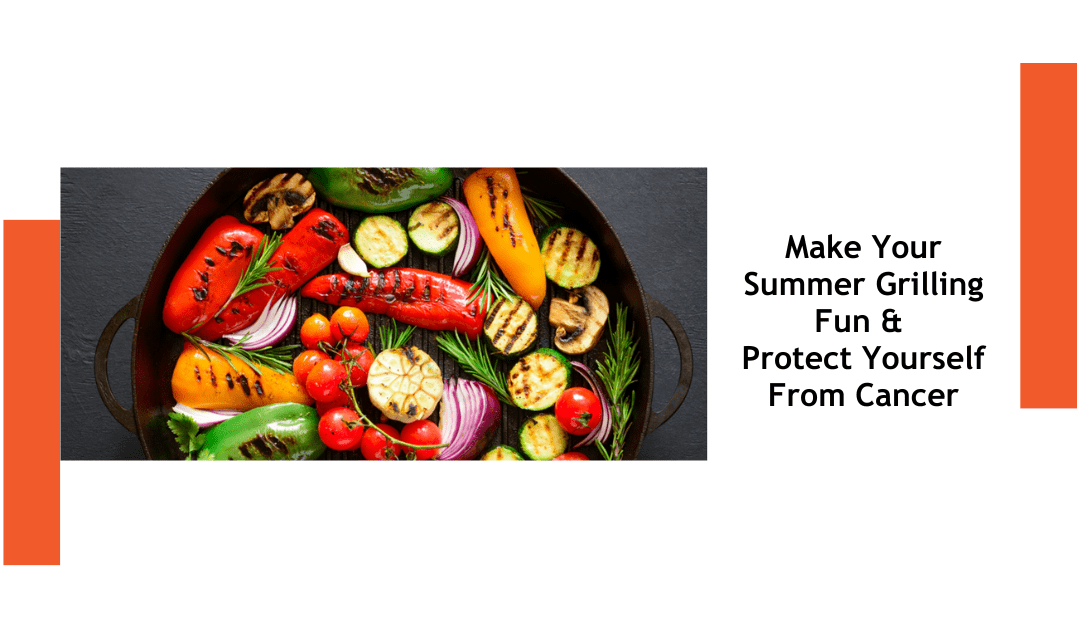
by Bag It Team | Jul 3, 2024 | Educational Articles
Grilling is a fun and tasty way to cook, especially in the summer. But did you know there are ways to make your grilled food healthier? Here are some simple tips to keep your food yummy and safe:
- Pick Lean Meats: Choose meats with less fat like chicken breasts, fish, or lean beef. Fatty meats can cause flames to flare up and create harmful chemicals. Trim off any extra fat before grilling.
- Marinate Your Meat: Soak your meat in a tasty marinade before grilling. Marinades with vinegar, lemon juice, or herbs can make your food healthier and protect against harmful chemicals that form when meat is cooked at high temperatures.
- Grill More Veggies and Fruits: Grilled vegetables and fruits are delicious and super healthy. Try grilling bell peppers, zucchini, mushrooms, pineapples, or peaches. They don’t create harmful chemicals when grilled, and they taste great!
- Avoid Burning Your Food: Don’t let your food get too dark or burnt. Burnt food can have bad chemicals. Cook at a moderate temperature and flip your food often to avoid charring. If parts do get burnt, cut them off before eating.
- Keep Your Grill Clean: Clean your grill regularly to get rid of old grease and food bits. This helps prevent harmful chemicals from forming.
- Pre-Cook Your Meat: Cook your meat a little bit in the microwave or oven before grilling. This way, it doesn’t have to stay on the grill too long and you can avoid harmful chemicals.
By following these easy tips, you can enjoy delicious grilled meals that are healthier for you. Happy grilling!

 Men are more likely than women to be diagnosed with cancer and have a higher mortality rate. The most common cancers affecting men in the U.S. are:
Men are more likely than women to be diagnosed with cancer and have a higher mortality rate. The most common cancers affecting men in the U.S. are:


 Three rounds of golf were played on March 7, 8, and 9 at La Paloma Country Club and The Westin La Paloma Resort & Spa in Tucson, Arizona. It’s a beautiful Jack Nicklaus-designed course. The purpose of the Cologuard Classic golf tournament is to bring awareness to colon cancer, the importance of early detection, the available treatments, the innovations in detection and treatment, the prevention, recognize those affected, and to answer the huge number of questions that people have about colon cancer. What an exciting and busy weekend! Much walking was involved. Thank you to the Tucson Conquistadores and Exact Sciences and many others for coordinating this event.
Three rounds of golf were played on March 7, 8, and 9 at La Paloma Country Club and The Westin La Paloma Resort & Spa in Tucson, Arizona. It’s a beautiful Jack Nicklaus-designed course. The purpose of the Cologuard Classic golf tournament is to bring awareness to colon cancer, the importance of early detection, the available treatments, the innovations in detection and treatment, the prevention, recognize those affected, and to answer the huge number of questions that people have about colon cancer. What an exciting and busy weekend! Much walking was involved. Thank you to the Tucson Conquistadores and Exact Sciences and many others for coordinating this event. We were able to attend and participate in some fun and informative activities in the “Advocacy Expo Area”, yummy food was readily available in Survivor Central and other areas, there was some TV coverage of the opening ceremonies on the Today Show, there were some workshops/presentations inside the main hotel about treatment options, diagnoses, giving our feedback about our cancer experiences, and treatment innovations. I would like to have been able to attend more because they all sounded very interesting. Some of us touched base with fellow survivors and had personal conversations. I was able to give one of the new CRC (Colorectal Cancer) Bag It Bags to a lady from South Carolina. She and I went to her room and I gave her the guided tour of the Bag. She was extremely grateful to receive the bag. The look of gratitude on her face was rewarding. We exchanged contact information and we’ll stay in touch.
We were able to attend and participate in some fun and informative activities in the “Advocacy Expo Area”, yummy food was readily available in Survivor Central and other areas, there was some TV coverage of the opening ceremonies on the Today Show, there were some workshops/presentations inside the main hotel about treatment options, diagnoses, giving our feedback about our cancer experiences, and treatment innovations. I would like to have been able to attend more because they all sounded very interesting. Some of us touched base with fellow survivors and had personal conversations. I was able to give one of the new CRC (Colorectal Cancer) Bag It Bags to a lady from South Carolina. She and I went to her room and I gave her the guided tour of the Bag. She was extremely grateful to receive the bag. The look of gratitude on her face was rewarding. We exchanged contact information and we’ll stay in touch. I found out that there were 361 colorectal cancer patients, survivors, caregivers and loved ones from 36 states and Canada who attended this year’s Cologuard Classic.
I found out that there were 361 colorectal cancer patients, survivors, caregivers and loved ones from 36 states and Canada who attended this year’s Cologuard Classic.
 Looking for tips on healthy living and overall wellness?
Looking for tips on healthy living and overall wellness?
 Studies show that pets can significantly improve mental well-being. Many cancer centers and hospitals recognize this and offer pet therapy programs. These programs include visits to clinics, support groups and even home visits for patients. Our furry friends can lift our moods, lower stress, create a calming effect, reduce pain and have a positive impact on our overall health.
Studies show that pets can significantly improve mental well-being. Many cancer centers and hospitals recognize this and offer pet therapy programs. These programs include visits to clinics, support groups and even home visits for patients. Our furry friends can lift our moods, lower stress, create a calming effect, reduce pain and have a positive impact on our overall health.

Recent Comments